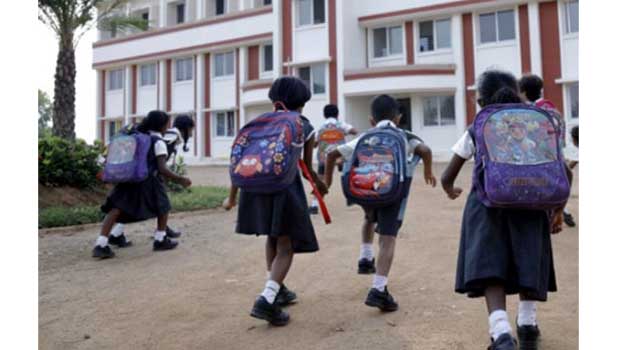Landmark measures for decent living of teachers

- 4354 instts enlisted under MPO scheme in one decade
- 4000 more insttns to be enlisted soon
The government plans to further improve quality of education in schools by focusing on gradual improvement of livelihood of the teachers.
The plan focuses on the quality of livelihood of teachers in order to improve and further increase the current literacy rate and also reduce school dropout rates.
State Minister for Primary and Mass Education Md Zakir Hossain said, “In order to make primary education more dynamic, in 2013, Prime Minister Sheikh Hasina nationalised some 26,193 registered and community (private) primary schools.
“The job of 105,616 primary school teachers has been nationalized and prime minister gave second class status to the post of headmaster. This is another landmark step in the advancement of primary education.”
As part of its livelihood quality improvement steps, last year, a total of 2,730 non-government educational institutions across the country had been enlisted under the scheme of MPO (Monthly Pay Order). Experts opine that such step may substantially contribute to the improvement of quality of life of teachers and their families as well and in return they will be able to concentrate more on imparting education.
More educational institutions, including Ebtedayee Madrasahs (religious schools), will be brought under MPO soon, education ministry sources said.
The teachers of some 4,354 educational institutions have been enlisted under MPO scheme in one decade while more than 4,000 institutions will be enlisted soon, according to education ministry sources.
About the MPO registration of educational institutions, Education Minister Dr Dipu Moni recently said, “We have started working on the problems that exist in the case of MPO registration. In case of change in MPO policy, the issue of Ebtedayee madrasha must be included”.
She also said, “Apart from other educational institutions, we are aware of the issue of Ebtedayee Madrasah teachers. Prime Minister Sheikh Hasina has taken the issue very seriously. The PM has agreed to include the madrashas under MPO.”
About technical education, the minister said, “We are making technical education compulsory in general education and madrasa education as well. We have made arrangements to introduce at least two trades (Technical Subjects) as compulsory in class nine and class ten. If the corona situation ends sooner, we plan to launch it in every institution by 2022.”
According to ministry sources, there are a total of 4,312 independent Ebtedayee Madrashas in the country. According to the proposal sent to the Prime Minister’s Office, the government will spend Tk 310.97 crore every year to pay the salaries and allowances of these institutions.
Of the total institutions, some 1,519 institutions are registered for government grants. If these madrashas are also MPO registered, the government will have to spend Tk 109.54 crore annually. Besides, there are some 2,793 unapproved educational institutions. The annual expenditure for these institutions will be Tk 201.42 crore.
Professor Kaiser Ahmed, Chairman of Bangladesh Madrasha Education Board told Bangladesh Post, “The government has emphasised technical education in madrasah education to ensure quality education and achieve SDG-4 challenges.”
“A total of 557 madrashas have been enlisted under the MPO scheme in 2019. The directorate of Madrashah Education is working to bring more madrashash under MPO.”
On the other hand, 887 institutions belong to the secondary slot of Class nine and ten while 68 institutions are under the higher secondary slot are getting MPO facilities after enlisted in 2019.
Earlier, MPO announcement came in 2010 when a total of 1,624 educational institutions were given such facilities of getting salaries from the government.
Meanwhile, the Primary and Mass Education Ministry took various initiatives including distribution of free textbooks, provision of stipends, mid-day meal, development of school infrastructures, recruitment of adequate teachers and so on in order to prevent dropouts and ensure quality education.
The state minister also said, “The literacy rate has increased to 74.7 percent. In 2005, it was only 53.5 percent. The current enrollment rate in primary education has increased to 97.74 percent and dropout rate reduced to 17.90 percent.”
Meanwhile, the government has been implementing the 7th Five-Year-Plan (2016-2020) and has taken all-out measures to achieve the international commitment of Sustainable Development Goals (SDGs). There is a comprehensive plan for the non-formal education sub-sector in the 7th Five Year Plan to promote literacy, skills development training and create lifelong learning opportunities, which is the fourth goal of SDGs.



